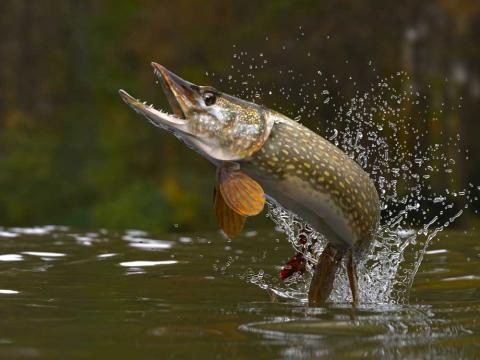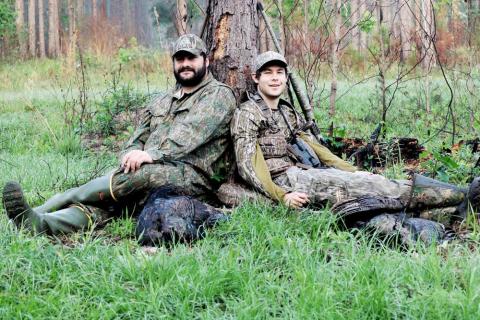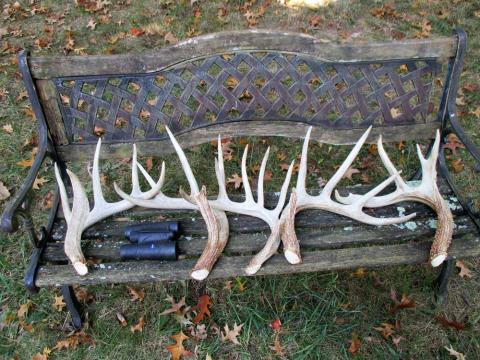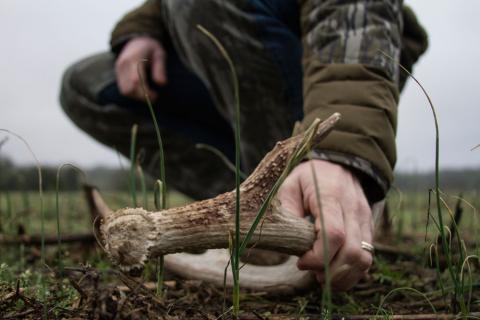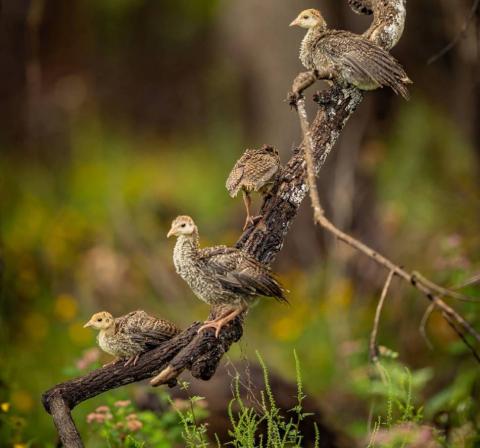provided by John Phillips
Bobby Cole is vice president of Mossy Oak BioLogic and GameKeepers. He’s a hunter and can tell you everything you need to know about Mossy Oak BioLogic plantings and how to better manage your lands for wildlife.
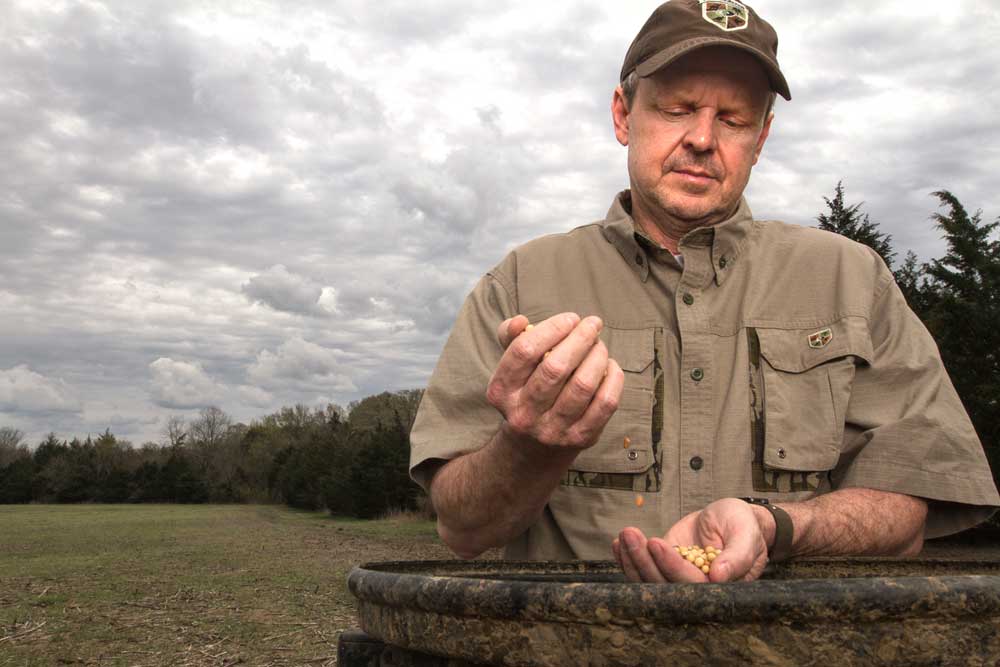
Do a Soil Test
Often hunters may not realize the importance of planting green fields. The soil test tells the landowner or lease holder what needs to be added to the land to help produce the best crop possible, and what amounts of lime and fertilizer will be beneficial to grow the best green fields possible.
On the BioLogic website, you’ll find information on what you need to do to get your soil tested. You simply take a few handfuls of soil, put them in a Ziploc bag, send it to BioLogic’s soil-testing department and then receive a prescription for how much lime and fertilizer your soil needs added to it to produce the best deer food. Within 24 hours after the lab receives the dirt, you’ll get an email back with results. Not only does that soil-test report tell you what you can add to your soil to make it more beneficial to the plants you’re intending to plant but also how much you should use per acre.
If you’ll tell BioLogic what you’re going to plant, BioLogic will give you an exact prescription for the amount and type of fertilizer and lime you need to put on your property to grow that particular planting to produce the most tonnage per acre. BioLogic will suggest three different types of fertilizer you can use. Then if your farm store doesn’t have the type of fertilizer BioLogic has recommended, the store should have another brand that you can buy and use to get the same results.
That’s why every year before you plant your food plots, you need to do a soil test. The seeds that we give you at Mossy Oak BioLogic in all of its food-plot plantings pull the nutrients out of the soil into the plants, and the plants put those nutrients into the leaves. Then the deer can eat the leaves and ingest the nutrients. This means you have to put those nutrients back into the soil every year before you plant.
Don’t Overlook Clover in a Food Plot
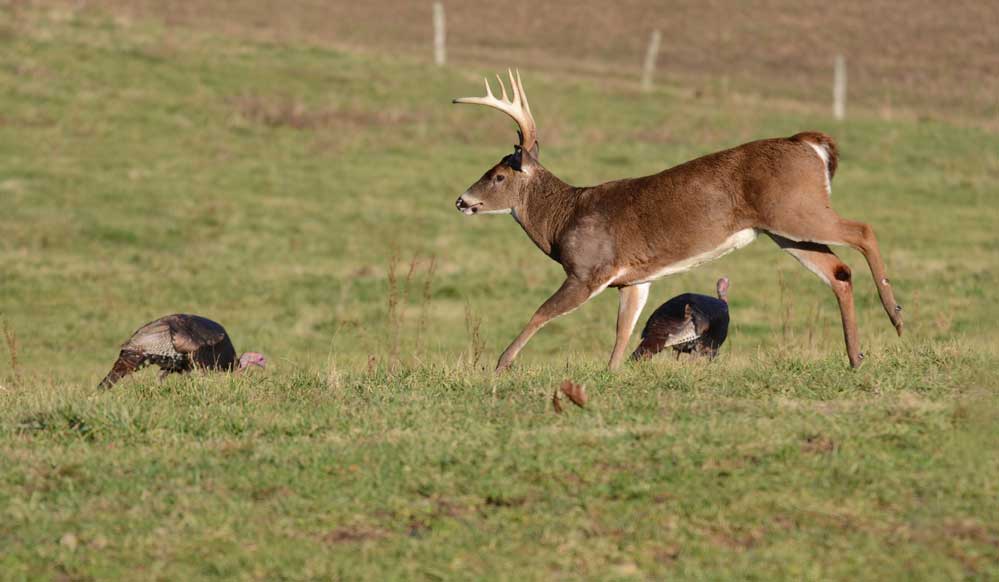
Here at BioLogic, we love clover. It’s one of our favorite food-plot plantings. We have two types of clover we recommend - our Non-Typical Clover, a white Ladino type of clover. Since this clover blooms somewhat later than other clovers do, it provides food for deer and turkeys later in the spring than many other clovers. Another blend BioLogic recommends is Clover Plus Chicory, a blend of red and white clover with chicory added.
One of the reasons so many landowners and hunters plant clover is because clover is a nutritious food source for both turkeys and deer. It produces 25-30% crude protein and continuously puts on highly nutritious leaves year round. Up North, the clover will become dormant during the winter months. But deer will even dig through the snow to feed on it. In the South, clover tends to go dormant in the summer months. If you have clover planted in some of your food plots, you’ll provide nutritious deer food on your property almost all year long, and you don’t have to replant it very often. We know of some Cover Plus fields that are 8 years old and still are producing deer food without having to be replanted.
A bag of clover seed costs about $40-$50 and will plant one acre. If that food plot produces for 4 years, that clover field becomes a very inexpensive food plot while producing high-nutrient forage all year long. You may have to mow your clover fields once or twice a year or spray them every year to control the weeds. Not only do white-tailed deer love clover, so do wild turkeys. Clover also benefits other wildlife species like rabbits. If I had a property big enough to have 10 different food plots on it, I’d have at least three or four of them planted in clover.
To learn more about improving your land for wildlife, planting green fields and knowing when to plant what where, go to www.plantbiologic.com, and/or call 662-495-9292. To order “GameKeepers Magazine,” go to GameKeepers Club, and you can join us as a GameKeeper and get our magazine.
















